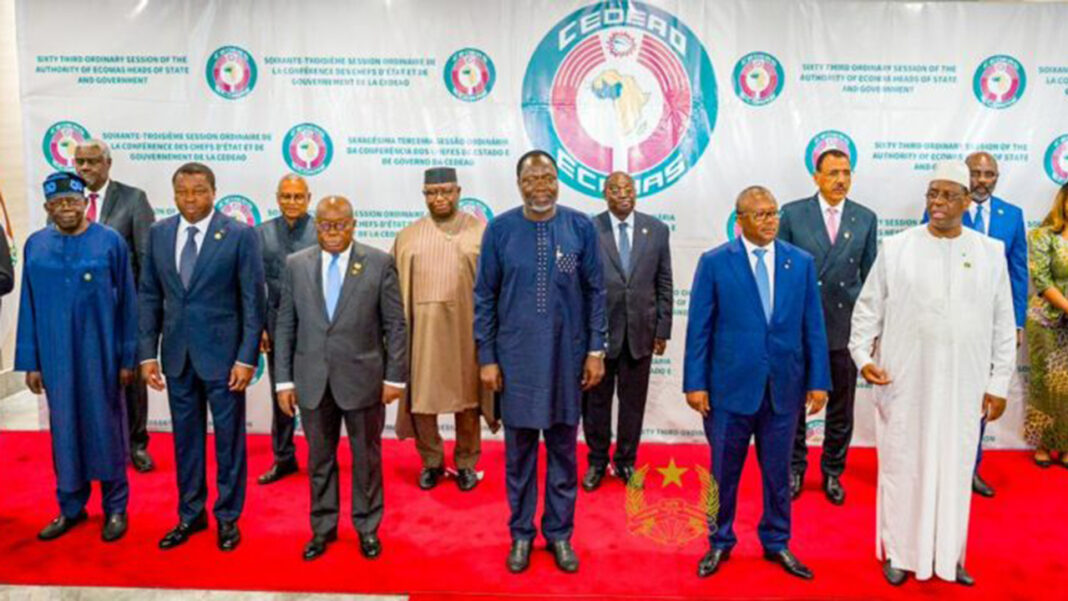The Niger’s situation will determine ECOWAS (Economic Community Of West African States)’s future existence and relevance to peace keeping in West Africa after decades of its formation. Niger’s political situation is complex, and it calls for critical and strategic thinking. Military intervention at a time when countries are thinking about putting food on the table of the ‘common man requires complete exhaustion of all options.
It must be a last resort, that is, when all peace avenues have been explored and diplomatic options exhausted. The ousted leader, President Mohamed Bazoum does not appear to be in sync with his people during his presidency. No one took to the streets after his overthrow even when Nigeria cut off power supply in Niger.
Voters, most times, risk their safety in defence of popular leaders and not cruel or despotic ones. The Niger Army said they took over governance because Bazoum was not ruling in the country’s interest particularly handling of the economy. At the moment, governments are losing grip as people protest against worsening economic conditions in many countries within and outside Africa.
These protests took place even in first world countries. Greece, until now, was recently embroiled in protests against tough economic conditions. Britain, for instance, recently saw frequent changes of prime ministers owing to the fall in value of the British pound.
Similar situations also took place in other European countries as well as Africa. A number of protests have taken place in Sierra Leone against high cost of living. Political analysts have vehemently argued that the growing hardship will cause the collapse of governments in African countries if urgent measures not taken to improve the people’s well-being.
Niger appears to be one of those countries whose civilian government has fallen in the hands of the khaki boys, a move prompted by the economic hardship. ECOWAS however pays little or no attention to the causes of coups but only coups.
Despite alleged misrule in Niger, the sub-regional bloc is poised only to restore Bazoum to power, a move that portrays ECOWAS as an institution that always protects Presidents no matter who they are and whatever means they use to come to power.
A big hurdle however lies in ECOWAS’s way to the reversal of the Niger coup. Countries especially which have been very much supportive of ECOWAS have backed out. They are not ready to fight on ECOWAS side this time accusing it of being over-protective of Presidents and not the masses.
Guinea, Burkinafasso and Mali have vouched to protect Niger if ECOWAS sends troops there. Although Egypt and Algeria are outside West Africa, they too have pledged troops to protect Niger in an event of an ECOWAS invasion.
Threatened and panic-stricken, ECOWAS is reconsidering its decision to attack the coup leaders in Niger since the consequences are yet unknown. Members of the sub-regional bloc have gone back to the round table in search of diplomatic options that will bring peace to Niger. Member states, few days back, complained of resource constraints to embark on full-scale combat operation in Niger.
They are yet to put money on the table except Cote d’voire who recently pledged USD150m as part of her financial contribution to the proposed the military strike of Niger. The operation, to date, is yet to commence and the ousted President Bazoum is still in detention with no one knowing his fate.
Double standards in its response to coups and political crisis is slowly killing ECOWAS. The Guinea situation presents a splendid example of how ECOWAS cares only for leaders and not the subjects. ECOWAS was silent
while the toppled President Alpha Conde was manipulating the country’s constitution for a third term, and they made their voices heard only when Conde was overthrown and detained.
In fact Conde’s third-term manoeuverings came at a time the sub-regional body were going against third-term or life-time presidencies in West Africa. Such moves are the main causes of wars and bloody revolutions in the sub-region. Although Conde had no right to tamper with the constitution, he did it with the hope of enjoying ECOWAS’s protection. When he was removed and detained, ECOWAS delegation to Guinea demanded his immediate release and democratic restoration. The seeming hypocrisy on ECOWAS’s side made the Guinean coup leader, Colonel Mahmady Doumbouya intrasigent as he showed no specific time as to when he would hand over power to civilians.
Founded in 1975, ECOWAS has been safeguarding peace and democracy in the sub-region. It succeeded in the restoration of democracy in Liberia in 1991 and in Sierra Leone in 1998, but it is however difficult to do same in Niger. If its mission fails, the body will lose its relevance to the protection of peace and democracy in the sub-region.


